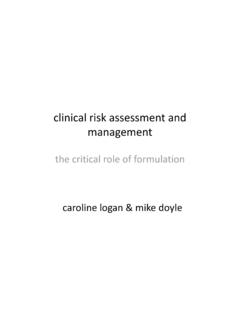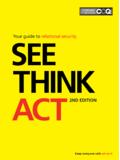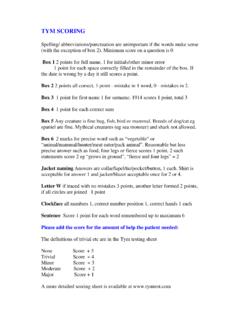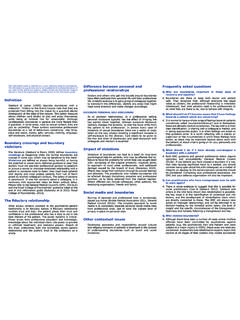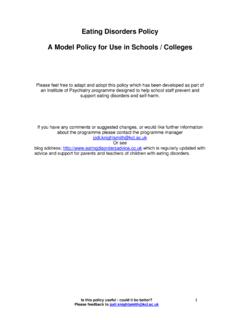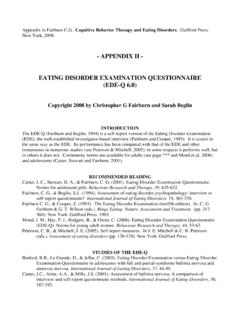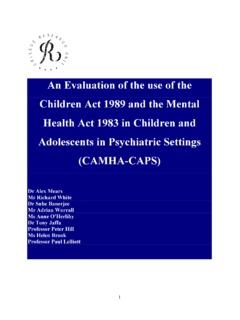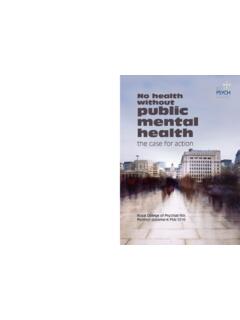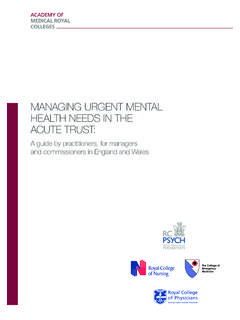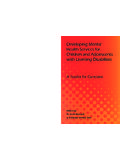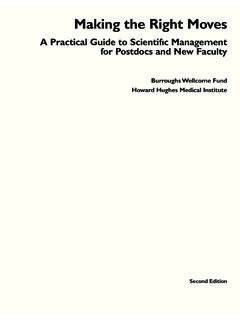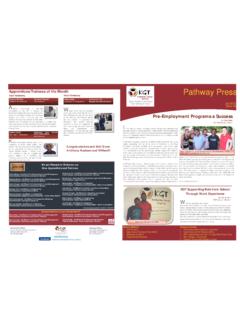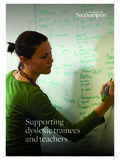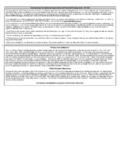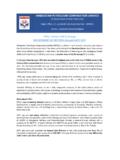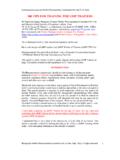Transcription of Trainees’ Guide to Workplace Based Assessment
1 Trainees Guide to Workplace Based Assessment Dr Geoff Searle, Dr Gareth Holsgrove and Dr Nick Brown June 2007 Version Introduction The College curriculum for specialist training in Psychiatry is supported by an extensive Assessment programme comprising both Workplace Based assessments and formal MRCP sych examinations. Details of the MRCP sych examinations appear elsewhere, including the College website ( ). This document is concerned only with Workplace Based Assessment (WPBA). Curriculum The basis of the Specialty Training Programme in Psychiatry is the College Curriculum. This has been approved by PMETB and comprises the Core and General module, 6 specialty modules, and 3 sub-specialty modules. The same Workplace Based Assessment methods are used throughout.
2 The entire curriculum is mapped to Good Medical Practice and the Core and General module indicates the phase of training through the use of colour: red = ST1; gold = ST2&3; violet + ST4&5; and green = ST6. The same colour codes are used in all documents concerned with a specific phase of training, including several, but not all, of the WPBA forms. Documents that are not specific to a particular phase of training (such as the Core and General module and some of the WPBA forms) have a pale blue title on the cover page. The curriculum is designed to be used as an electronic hyperlinked document, with the competencies linked to the portfolio for each stage of training & the matrix of Assessment methods. The portfolio is the key document for the trainee to familiarise themselves with in order to manage their training with the help of their supervisor & tutor.
3 Underlying Principles Workplace Based assessments must comply with the four College principles: o They must focus on performance (ie what the trainee actually does in the Workplace ) o They must be evidence Based o Evidence must be triangulated whenever possible (ie it must be provided by different assessors, on different occasions, and if possible using different methods) o Records must be permanent Assessment forms must not be lost or destroyed. Workplace Based assessments will fulfill both formative and summative Assessment purposes. they are therefore very important because they inform educational planning, map progress and attainment, and confirm readiness to take the MRCP sych and progress to the next stage of training.
4 Trainees Guide to Workplace Based Assessment 08/08/2007 Royal College of Psychiatrists 2007 1 Therefore, they should not be left until the end of each stage of training and/or clinical placement. It is strongly suggested that both a mini-Ace and Case Based Discussion (CbD) occur at the earliest opportunity in any new placement. This reflects the power of Workplace Based Assessment in formative Assessment how am I doing? . Thus the assessments directly inform the learning plan including intended learning outcomes for any given phase of training or clinical placement Workplace Based assessments are largely the trainee s responsibility to arrange. It is very helpful (but not mandatory) for Trainees to identify for themselves, as well as their supervisor and tutors, specific competencies or aspects to be assessed and to note their alphanumeric code reference on the WPBA form.
5 Trainees can choose to be assessed at a higher level of training than the stage they are in at the time. The curriculum is hyperlinked to both the Assessment programme and the Specialty Registrar Portfolio of Progress and Attainment. Purpose The purpose of the Workplace Based assessments is threefold. Firstly, they have a formative function as the basis for feedback and educational planning. This includes both normal learner development during training and helping identify any specially focused teaching that might be necessary to fill gaps or resolve weaknesses. Secondly, they have a summative function which provides evidence of the attainment of competencies. This evidence is used within training to determine entry into the MRCP sych examinations or progress to the next phase of training (whether within run-through training or not).
6 Thirdly, Workplace Based assessments are a very important means by which each trainee s progress is documented and externally monitored. Documentation of the growth of competence is essential for PMETB to award specialist status. Assessments There are 10 Workplace Based assessments available. These are described in detail elsewhere ( College website) and they are merely outlined below. They should be completed by a variety of raters (including non-doctors), in a variety of settings throughout training. ACE: Assessed Clinical Encounter, a whole clinical encounter with a patient observed by the rater, including formulation/management & documentation takes about hours. Trainees Guide to Workplace Based Assessment 08/08/2007 Royal College of Psychiatrists 2007 2 Mini-ACE: Mini- Assessed Clinical Encounter , a section of a clinical encounter, usually task focused eg: assessing the patient s risk to themselves.
7 About 20 minutes. CbD: Case Based Discussion, a discussion of a case (interaction not observed) Based on chart stimulated recall . 15-30 minutes. CP: Case Presentation, a Grand Round style formal presentation. JCP: Journal Club Presentation, an evidence Based presentation of a subject (possibly an audit). AoT: Assessment of Teaching an observed session of teaching by the trainee . DOPS: Direct Observation of Procedural Skill. Little used in psychiatry, but ECT & CPR training could be recorded in this way. Mini-PAT & TAB: Peer Assessment Tool & Team Assessment of Behaviour. Two 360 assessments requiring confidential feedback from at least eight team members. PSQ: Patient Satisfaction Questionnaire, is exactly what it says it is.
8 Feedback from 30 patients following clinical encounters. Requirements During the transitional period there are no strictly defined timetables of Assessment completion, but from the expected requirements for entry into the MRCP sych examinations the absolute minimum of assessments annually is: 3 ACE 4 Mini-ACE 2 CBD 1 JCP or CP and a 360 degree Assessment Evaluated (but not performed) by the trainee s educational supervisor & verified by their Tutor/Director of Medical Education. This limited number of assessments would not allow a trainee to accumulate sufficient signed off/ verified competencies to satisfy external summative demands, but the inevitable variation in the rates of achievement between different trainees and the reality that competence should occur towards the end of each phase of training means that a rigid and structured programme is inappropriate.
9 It is fundamentally important to note that, since they form the basis for feedback and educational planning, Workplace Based assessments are carried out at appropriate intervals throughout training rather than left until the end of each phase. In particular, it is strongly suggested that within the early stages of each phase of training or clinical placement a mini-ACE and Case Based Discussion (CbD) are carried out. This is because these tools reflect closely the expected day-to-day work of a junior doctor in Psychiatry both in terms of the Assessment of cases and clinical reasoning and judgement. Furthermore, where possible it is considered good practice that one Assessment of Clinical Expertise (ACE) be carried out during the first month of each rotation.
10 This is so that the Trainees Guide to Workplace Based Assessment 08/08/2007 Royal College of Psychiatrists 2007 3 trainee is observed in detail working with patients early in each placement and an appropriate educational plan can be agreed. It is expected that Trainees will probably not be attaining the standard for completion of that phase of training early in any particular placement the purpose of these early assessments is to identify what each trainee is doing well and which areas need to develop. Thus it must be understood by all concerned that it is most unlikely that these assessments made in the earlier stages of each phase of training will produce ratings of 4 or better across the board. Assessment forms All WPBA forms have been designed as a single page.
